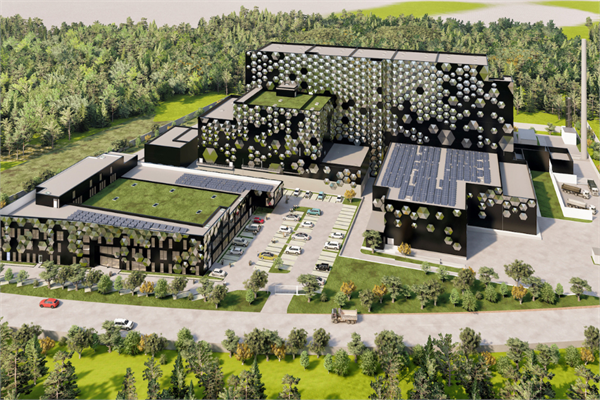
Luxembourg authorities have approved OCSiAl’s $300 million project for a new graphene nanotube production facility.
OCSiAl, a global manufacturer of graphene nanotubes, has obtained approval from local authorities to build a graphene nanotube synthesis facility and a R&D center in Differdange, Luxembourg. The facility will consolidate OCSiAl's strategic advantage as a leading supplier of graphene and facilitate the distribution across Europe of graphene nanotubes for a wide range of sectors, including construction, automotive, electronics and oil and gas.
A graphene nanotube is a revolutionary material with a unique form of carbon that can be imagined as a graphene sheet, one atom thick, rolled into a tube. It is one of the best existing electrical conductors as it is 100 times stronger than steel but lighter than aluminum.
When integrated within a material, the nanotubes create a strong and conductive skeleton which results in a substantial improvement in the material’s targeted properties, such as permanent and stable conductivity, colour flexibility, greater strength and improved durability of coatings. Graphene nanotubes can be successfully integrated into mold coats and gelcoat, PVC and polyurethane coatings, lining coatings, anti-static flooring and printing roller coatings, acrylic primers for vehicles and powder coatings.
“Our state-of-the-art graphene nanotube facility in Luxembourg will be positioned between Belgium, France, and Germany, and will allow us to reduce logistics costs and work closely with leading automakers, the largest chemical producers, and polymer manufacturers across Europe,” said Konstantin Notman, Chief Executive Officer of OCSiAl Group.
For the project, OCSiAl will invest $ 300 million. The facility will be designed to minimize the use of energy and resources, as well as to protect the population and biodiversity in the surrounding environment from any negative impact. In addition to the production of graphene nanotubes, the new center will allow OCSiAl to further improve its technical support to customers and accelerate joint projects.
The facility, which is expected to be the largest of its kind, is scheduled to start production in 2025.